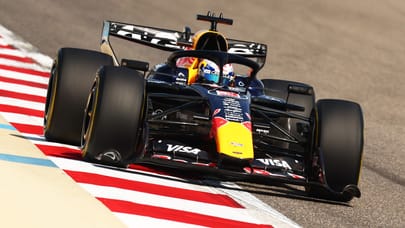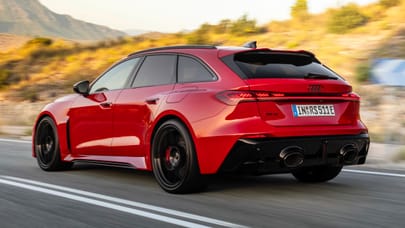
Ineos: "we should be going for ‘lower’ emission vehicles, not zero emission"
Striving for a ‘one-tech’ solution is killing progress (and the car industry), according to Ineos Automotive CEO Lynn Calder
“We’re in a world where policy is defining what people should buy, and people don’t want it,” said Ineos Automotive CEO Lynn Calder at the FT’s Future of the Car summit.
Calder is voicing concerns about the regulations around the push for electrification. “I think customers don’t want choice, they need choice, [and] the policy framework that's in place with these kinds of drop-dead dates and a one-technology solution is designed inherently not to give that choice.”
Europe is the only region where petrol and diesel sales will be phased out in 2030 for passenger cars, and again in 2035 for commercial vehicles. Calder reckons there’s ‘no chance’ of there being ‘nothing but electric cars’ on the market by the time the 2035 deadline rolls around.
Despite the government relaxing the rules to allow hybrids to continue being sold, Calder said the timing is off (and Nissan's urgent restructuring suggests the Ineos boss does have a point): "The industry is on its knees. £4.5bn was put into the UK market last year to get customers into electric cars. Since [the pandemic], economic conditions have been terrible, powertrain policy has been difficult and confusing, [with] incessant regulation on supposed safety features that everyone wants to switch off - and then [we get] a trade war.
“We need to recognise consumer demand, the popularity of hybrids. But that’s come at a great cost, investment in [multiple] powertrain options: manufacturers have spent tens of billions on strategies that are not working.
“We’ve lost sight [of the customer] which is why we’re in the situation we’re in. The risk we run is that consumers hold onto older, less efficient cars for longer,” she added.
She wants regulations to become ‘technology-agnostic’ and insisted the industry should be aiming for lower-emission vehicles, not zero-emission ones. The sentiment is pragmatic enough, but Ineos as a carmaker is a novel venture. It knew the electric-only roadmap when it got into building the Ineos Grenadier, and starting a car business when you know the goal then complaining about the goal is a bit... er, hypocritical, no? Calder thinks not.
“Electrification will always have its place, but it's not going to be a one-technology solution," she said, "EV tech adopters are in cities with charging capability, but [outside of that] there’s no real investment in infrastructure, and no real incentives to go electric."
The feeling is hybrids – in various guises – need to be hugged, hard. The Ineos Fusilier, with its range-extender powertrain potential, might still in the pipeline, but it's all policy-dependent. "That's just been paused, not cancelled," she said. "[But] if we come out with our Fusilier in 2027 or 2028, we've got a lifecycle of selling in Europe and the UK for six or seven years maximum, and that's not an economic business case.
“I think the reality is we will be selling them for longer than that. I just want them [the regulators] to say that today, not in 10 years' time, because this is not an industry that can survive on last minute dot com decisions; it's an industry that needs clarity."
Top Gear
Newsletter
Thank you for subscribing to our newsletter. Look out for your regular round-up of news, reviews and offers in your inbox.
Get all the latest news, reviews and exclusives, direct to your inbox.
Trending this week
- Top Gear Advice
Here are 19 brilliant cars that are cheaper than you think








